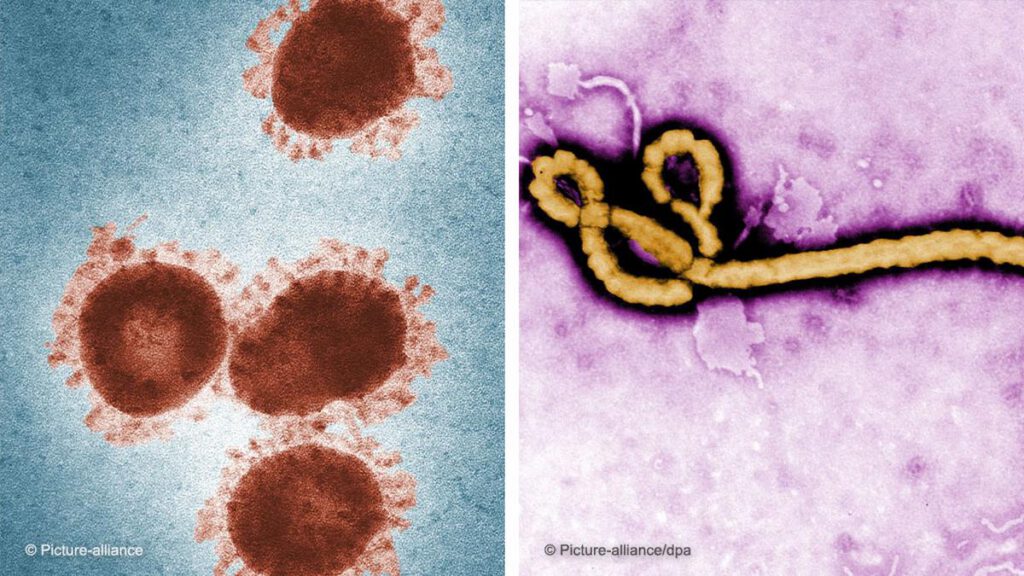By Innocent Mpoze

Covid-19 Testing in Uganda and the DRC
Situating the knowns and unknowns in the Covid-19 pandemic
8.2.2022
By Innocent Mpoze

From 12 November to the 19 November in 2021, our research team conducted interviews in Beni and Butembo on the diagnostics of the Covid-19 disease. We observed that few individuals were following infection control and prevention measures and that a large part of the population does not give the impression to belief that the pandemic is real. Our interviews and observations help us to identify the following points to understand this rebellion against the response to the current pandemic (« attitude rebelle collective ») in what might be called „Nande country“.
Mistrust of the population, a consequence of a flimsy management of the violence in the region by public authorities
Although it has already taken human lives, some parts of the population of Butembo and Beni still belief that the Covid-19 pandemic is a political invention to exterminate the population. For some it is a simple flu that cannot be the object of panic. For others, it is a bait to lure people into dilapidated hospitals, where they will die, instead of receiving good care. In both towns it happened more than once that talking about the Covid-19 shifted the discussion to the inventors of the pandemic, in particular political actors and the ‘accomplices’ of what Jean Ziegler calls ‘the masters of the world’, whom our interlocutors accused of having the dirty ambition to exterminate the Nande population.
In fact, having gone through a long cycle of violence and large-scale killings, the Nande people have developed an imagination of accusation (« imaginaire accusateur »). According to this imagination government actions are seen as a strategy to erase their existence on Congolese soil. For the Nande people, it is incomprehensible that the Congelese government is not able to provide security in this part of the country, which shapes people’s reading of decisions made by the government and their position toward them. As a taxi driver in Beni told us: „We have long suffered from the horrors of killings. We are not going to accept that the government continues to eliminate us by creating a disease that does not exist among us.” This statement aptly reflects the population’s position toward Covid-19 response measures. In particular, people approach Covid-19 testing with a spirit of rebellion (« esprit rebelle ») based on the assumption that people admitted to the hospitals do not return alive.
Diagnosis of covid-19 or strategy for attracting international assistance
In these two towns, many people maintain that the number of deaths is nothing else than a ruse made up to attract donor funding and external support. For the Nande community, it is unthinkable to go to hospitals in these times of Covid-19 to avoid that one is falsely diagnosed with Covid-19. “Health workers inflate the number of positive cases to attract the funding from the international community. We don't believe anything they tell us about this imaginary disease,” said a tomato seller in Beni. This is the atmosphere in which the response is evolving. The local population prefers self-medication using traditional therapeutic practices, much to the dismay of health authorities, which propagate treatment protocols through the various organizations that make up the Covid-19 response in the DRC.
Imperfect follow-up of hospitalized patients, a discouraging factor for the population
People frequently complain that patients are not followed up when they are hospitalized. In fact, in hospitals, there is a glaring lack of test kits or medicines; patients are treated with such slackness that some of them resort to traditional healing practices even inside the hospitals. Moreover, access to food remains a real challenge for most of the patients whose economic situation has been worsened through the pandemic.
Although the reasons given by the communities might at times appear to be absurd and unfounded, this should not refrain us from considering the non-existence and insufficient care of Covid-19 patients in hospitals. If one reflects on the way positive cases are managed, one is surprised to find that patients get the results of their test and go home to treat themselves, unfortunately without any medical follow-up. Even those who have a minimum of follow-up, this following up is mainly provided by family members working in the health sector.
Conclusion
If this situation persists, the risk of spreading the disease remains high because no one will have the courage to take the test, let alone accept any talk about the seriousness of the disease. Pushed to a culture of total rejection of government action, the way Covid response measures, especially Covid-19 testing, are received by the Nande people gives rise to a health situation in these two cities, which in the short, medium and long term may be difficult to control. Considering the need to stop this rebellious behavior toward Covid-19 testing immediately, a holistic approach to the general situation of these two cities might be needed. First, it is urgent to address popular imaginations of an evil government. This could perhaps be the task of civil society organizations carrying out media campaigns through all communication channels (modern and traditional). Secondly, and this is a matter of political credibility, it would be useful for politicians to leave the comfort zone of power and engage a dialogue with the people. Indeed, thinking about politics from above would be the wrong road in the context of Beni and Butembo. The only possible way forward is public action in which the strategies for ending the crises are developed through public participation. Furthermore, to restore public trust of health care personnel, the ethical dimension of caring for sick patients deserves greater attention. This concerns both improving the approach to sick patients and improving the means to provide proper care.